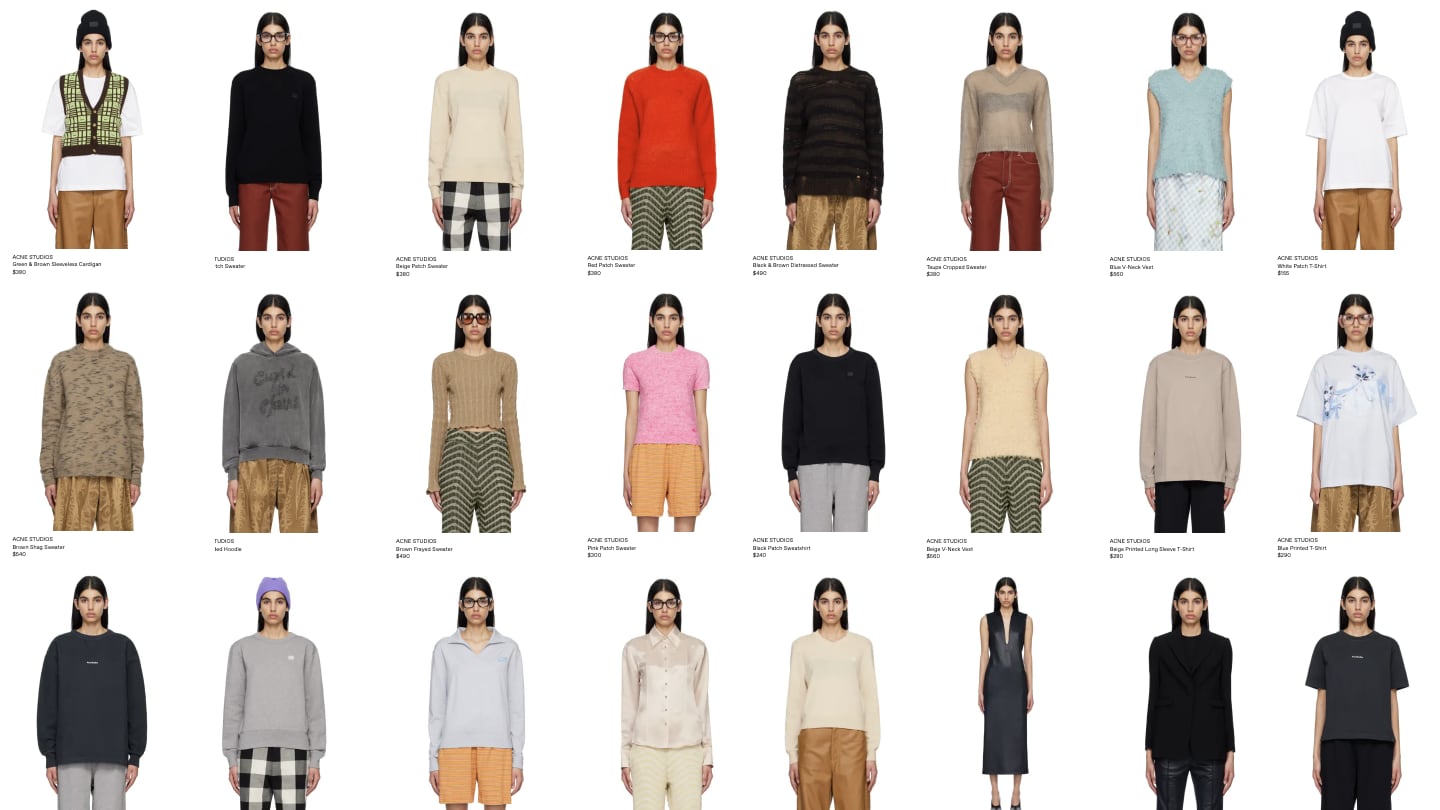
The Business of Fashion
Agenda-setting intelligence, analysis and advice for the global fashion community.

Agenda-setting intelligence, analysis and advice for the global fashion community.

Ssense, a Canadian retailer that has emerged as a major contender in the online multi-brand luxury space in recent years, has laid off 138 employees, the company confirmed to BoF.
The job cuts resulted in a 7 percent reduction of its overall workforce, marking the first time Ssense scaled back its headcount since its founding 20 years ago.
The company said the move was motivated by slowing e-commerce growth and an uncertain economic climate.
“This decision was based on a number of factors, including a shift in consumer online shopping back to pre-pandemic levels as well as the macro-economic environment,” Ssense said in an emailed statement. “Our long-term strategy remains unchanged; we remain focused on being the preeminent destination for fashion and design, and scaling our global platform.”
ADVERTISEMENT
Ssense joins a growing number of brands and retailers that have slashed jobs in recent months as consumer spending slows down. Last week, sportswear brand Gymshark announced 65 job cuts in its US division, while Everlane laid off 17 percent of its 175 corporate employees earlier this month.
The layoffs across the fashion tech sector reflect a stark reversal of the gains that e-commerce brands saw in the wake of the pandemic, when online shopping spiked from homebound shoppers.
In the summer of 2021, Ssense sold a minority stake to Sequoia Capital China in a deal that valued the retailer at $4 billion. The investment made waves in the online luxury retail space dominated by much larger players like Net-a-Porter and Farfetch.
Ssense offered consumers something different from its competitors: by identifying and, in some cases, investing in up-and-coming independent labels, the Canadian e-tailer touted an edit and curation totally idiosyncratic from its peers. For instance, Ssense was among the first stores to carry Marine Serre, Nensi Dojaka and Fear of God.
Its vast mix of indie brands and traditional luxury players like Gucci and The Row made Ssense the go-to online boutique of a certain kind of aspirational shopper: young, culturally tapped-in creative types with outsize influence among their peers.
But running any fashion e-commerce business comes with a tough set of obstacles. Shipping and fulfilling orders requires sophisticated logistics systems in warehouses at costs that are constantly rising. Price-conscious consumers in the US expect frequent discounts. On social media, shoppers often post about their bargain finds during one of Ssense’s famous sales.
Ssense has not disclosed sales figures, but the company told The New York Times that it was on track to bring in $750 million in 2021. According to media reports, the company is profitable and has been since its launch in 2003.
BoF can reveal the funding marks the first-ever external investment for the Montreal-based luxury e-commerce company, known for its curated selection of brands, ambitious editorial strategy and younger audience.
This week, the Canadian e-tailer announced investment from Sequoia Capital China at a valuation of more than $4 billion, signalling big ambitions to build on its success.
The e-tailer that pioneered selling luxury streetwear to millennials is opening a five-storey flagship in Montréal. The next challenge: building a billion-dollar global business while keeping its cool.

Cathaleen Chen is Retail Correspondent at The Business of Fashion. She is based in New York and drives BoF’s coverage of the retail and direct-to-consumer sectors.
As the German sportswear giant taps surging demand for its Samba and Gazelle sneakers, it’s also taking steps to spread its bets ahead of peak interest.
A profitable, multi-trillion dollar fashion industry populated with brands that generate minimal economic and environmental waste is within our reach, argues Lawrence Lenihan.
RFID technology has made self-checkout far more efficient than traditional scanning kiosks at retailers like Zara and Uniqlo, but the industry at large hesitates to fully embrace the innovation over concerns of theft and customer engagement.
The company has continued to struggle with growing “at scale” and issued a warning in February that revenue may not start increasing again until the fourth quarter.